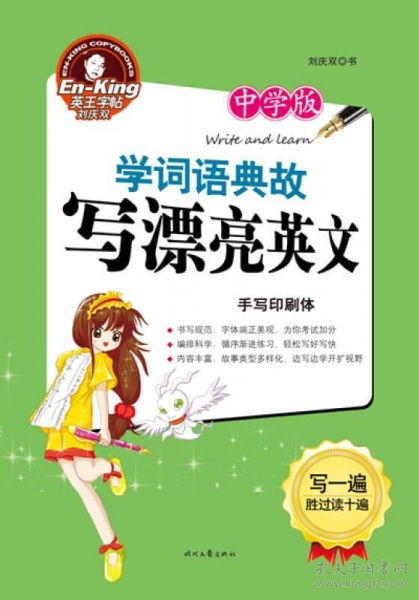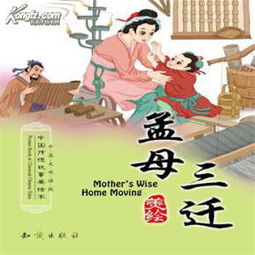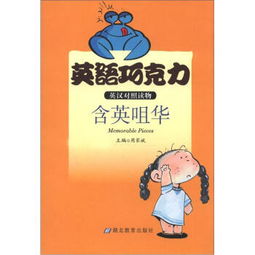英语中的常用典故(15个英语小故事(含中文越短越好)
1.15个英语小故事(含中文 越短越好
1.The Ox and the Dog An ox and a dog serve for the same farmer.One day the dog arrogantly says: “How grand I am! In the daytime, I watch out for the cattle in the meadows; at night, I guard the house. But you…” “Me? How about me ?” the ox says “You can only plough or draw a cart,” the dog slightly says. “Yes. It's true,” the ox says. “But if I don't plough, what do you guard?” 一头牛和一只狗同时为一个农夫工作。
狗骄傲地说着;'我是多么重要啊!白天我在牧场看护家群,晚上我看家。而你呢…..?” “我?我怎么啦?“ 牛反问。
“你只会犁地或是拉扯。”狗不懈地说。
“是的。你说得没有错,”牛回答道。
“但是如果没有我犁地,你看护什么呢?”2. A Good Boy Little Robert asked his mother for two cents. "What did you do with the money I gave you yesterday?" "I gave it to a poor old woman," he answered. "You're a good boy," said the mother proudly. "Here are two cents more. But why are you so interested in the old woman?" "She is the one who sells the candy." 【中文译文】 好孩子 小罗伯特向妈妈要两分钱。“昨天给你的钱干什么了?” “我给了一个可怜的老太婆,”他回答说。
“你真是个好孩子,”妈妈骄傲地说。“再给你两分钱。
可你为什么对那位老太太那么感兴趣呢?” “她是个卖糖果的。”3.tooth extraction “I'm sorry ,Madam ,but I shall have to charge you twenty dollars for pulling your boy's tooth .” “Twenty d ollars! Why ,I understand you to say that you charged only four dollars for such work!” “Yes,but this youngster yelled so terribly that he scared four other patients out of the office .” 拔牙 “对不起,夫人,为您孩子拔牙我要收取20美元。”
“20美元!为什么?不是说好只要4美元。” “是的,但是你的孩子大喊大叫,把另外四个病人吓跑了。”
4. One morning a fox saw a cock.He thought,"This is my breakfast.'' He came up to the cock and said,"I know you can sing very well.Can you sing for me?''The cock was glad.He closes his eyes and began to sing.The fox saw that and caught him in his mouth and carried him away. The people in the field saw the fox.They cried,"Look,look!The fox is carrying the cock away.'' The cock said to the fox,"Mr Fox,do you understand?The people say you are carrying their cock away.Tell them it is yours.Not theirs.'' The fox opened his mouth and said,"The cock is mine,not yours.''Just then the cock ran away from the fox and fled into the tree. 一天早上,一只狐狸看到了一只公鸡。他想:这是我的早餐。
他朝公鸡走来,对他说:“我知道,你能唱得非常好听,你能唱给我听么?”公鸡很高兴。他闭上眼睛开始唱歌。
狐狸看到这些抓住它放到自己的嘴里走了。 在田地里的人们看到了狐狸。
大喊大叫:“看,看!狐狸抓住公鸡逃走了。”公鸡对狐狸说:“狐狸先生,你能理解么?人们认为你叼走了公鸡。
告诉他们这是你的,不是他们的。” 狐狸张开她的嘴说:“公鸡是我的,不是你们的。”
就在那时,公鸡逃离了狐狸的嘴巴,跑到了树底下。5. Making His Mark “刻舟求剑” A man from the state of Chu was taking a boat across a river when he dropped his sword into the water carelessly. Immediately he made a mark on the side of the boat where the sword dropped, hoping to find it later. When the boat stopped moving, he went into the water to search for his sword at the place where he had marked the boat. As we know, the boat had moved but the sword had not. Isn't this a very foolish way to look for a sword?楚国有个人坐船渡江时,他不小心把自己的一把宝剑掉落江中。
他马上掏出一把小刀,在宝剑落水的船舷上刻上一个记号。船靠岸后,那楚人立即从船上刻记号的地方跳下水去捞取掉落的宝剑。
他怎么找得到 宝剑呢?船继续行驶,而宝剑却不会再移动。像他这样去找剑,真是太愚蠢可笑了。
6. 狗屋 The Dog' House 英语小故事大道理:It's easy to put off today what can be done tomorrow. 人们总是今天吧今天应做的事拖到明天 In the wintertime, a Dog curled up in as small a space as possible on account of the cold, determined to make himself a house. However when the summer returned again, he lay asleep stretched at his full length and appeared to himself to be of a great size. Now he considered that it would be neither an easy nor a necessary work to make himself such a house as would accommodate him.英语小故事带翻译: 冬天时,有一只狗由于寒冷,尽可能地把身子蜷成一团,他下决心一定要为自己建一所房子。可是夏天到来的时候,狗伸直了身子躺着睡觉,把身体尽可能伸展开。
现在 他觉得为自己建个适合自己的房子来住实在不容易,也没有那个必要。7.Sleeping Pills Bob was having trouble getting to sleep at night. He went to see his doctor, who prescribed some extra-strong sleeping pills. Sunday night Bob 。

2.英语中常用的典故
1. Practice makes perfect.熟能生巧。
2. God helps those who help themselves.天助自助者
3. Easier said than done.说起来容易做起来难。
4. Slow and steady wins the race.稳扎稳打无往而不胜。
5. A fall into the pit, a gain in your wit.吃一堑,长一智。
6. Where there is a will,there is a way.有志者事竟成。
7. One false step will make a great difference.失之毫厘,谬之千里。
8. It's never too old to learn.活到老,学到老。
9. All that glitters is not gold.闪光的未必都是金子。
10. Experience is the mother of wisdom.实践出真知。
11. All work and no play makes jack a dull boy.只工作不休息,聪明孩子也变傻。
12. Beauty without virtue is a rose without fragrance.无德之美犹如没有香味的玫瑰,徒有其表。
13. More hasty,less speed.欲速则不达。
14. Rome was not built in a day.伟业非一日之功。
15. Great minds think alike.英雄所见略同。
16. A journey of a thousand miles begins with a single step.千里之行始于足下。
17. Look before you leap.三思而后行。
18. Facts speak plainer than words.事实胜于雄辩。
19. Call back white and white back.颠倒黑白。
20. well begun,half done.好的开始等于成功的一半。
21. It is hard to please all.众口难调。
22. Ill news travels fast.坏事传千里。
23. Out of sight,out of mind.眼不见,心不念。
24. Beauty will buy no beef.漂亮不能当饭吃。
25. Like and like make good friends.趣味相投。
26. First things first.凡事有轻重缓急。
27. A friend in need is a friend indeed.患难见真情。
28. To live is to learn,to learn is to better live.活着为了学习,学习为了更好的活着。
29. live not to eat,but eat to live.活着不是为了吃饭,吃饭为了活着。
30. Action speaks louder than words.行动胜过语言。
31. East or west,home is the best.金窝银窝不如自家草窝。
32. It's not the gay coat that makes the gentleman.君子在德不在衣。
33. An idle youth,a needy age.少壮不努力,老大徒伤悲。
34. As the tree,so the fruit.种瓜得瓜,种豆得豆。
35. The older, the wiser.姜是老的辣。

3.英语谚语典故,急
运动英语小典故:10个最常见的表达
英语中有许多惯用语 (idiom)都是源自各种运动术语。这些惯用语除了用做字面的意思之外,经常还含有隐喻(metaphor) 的意思。
[田径]track and field jump the gun:(字面)偷跑。田径比赛时,裁判还没有鸣枪,选手就抢先起跑了。(比喻)过早采取行动。如果用在合唱,某人提前唱出某音时,就是“放炮”。
[美式足球]American football Monday morning quarterback: (字面)周一早晨的四分卫。美国电视在足球季的每个星期天都会转播一场比赛。由于是现场节目,结果立刻分晓。等到第二天早晨看了报纸才发表‘真知灼见’,为时以晚矣!(比喻) 事后诸葛亮;放马后炮。
[拳击]boxing have a glass jaw: (字面)有个玻璃做的下颚。在拳击赛中,下颚像是玻璃做的,一被击中就不支倒地。(比喻) 不堪一击。
[马术]horseback riding get on one's high horse:(字面)骑上一匹高大的马。从前,马术师自以为骑马的人高高在上,所以比用脚走路的人优越。(比喻) 摆出傲慢的态度;摆高姿态。
[高尔夫]golf not up to par: (字面)没有达到标准杆数。高尔夫球戏中,每一洞依难度及远近有一标准杆数,例如第一洞的标准杆数是四杆。因此,杆数越低越好。若击出超过标准杆数,没有达到一般水平,就是 not up to par. (比喻)做事情没有达到应有的标准;也可以说是失常。注意:up to par 不用于肯定句。
[斗牛]bullfighting take the bull by the horns:(字面)斗牛比赛时,斗牛士常握着牛角以扳倒牛,这是一项艰难又危险的动作。(比喻)采取果敢的行动应付艰难的局面;面对困难采取行动。虽然字面的意思上像是中文里的‘执牛耳’,而‘执牛耳’的英文却可以用 rule the roost [roast] 来表达。
[游泳]swimming sink or swim: (字面)遇到河流时,沉到水底或游泳逃生。 (比喻)不成功便成仁。
[网球]tennis The ball is in your court.: (字面)该由你发球了。许多运动的场地以网隔开,并由双方轮流发球,像网球、排球、羽毛球等。(比喻)轮到该你负责了;轮到你采取行动了。
[赛马]horse racing neck and neck: (字面)赛马时两马颈部同时抵达终点,即以平手论。(比喻)并驾齐驱;不分胜负;不相上下;不分轩轾。
[篮球]basketball The game isn't over until the fat lady sings.: (字面)胖妇人未唱歌前,比赛不算结束。这是达拉斯小牛队前教练 Dick Motta 的一句名言,指一场比赛紧张激烈,不到结束时刻,仍然胜负未卜。在歌剧中,往往在结束前的高潮便是由一位身材丰满的女声乐家表演。胖妇人开始唱歌是比喻比赛将要结束。(比喻) 比赛不到最后一刻不知鹿死谁手。
4.有哪些英语谚语的典故
Playing the Lute to a Cow 对牛弹琴 In ancient times was a man who played the zither very well. Once, he played a tune in front of a cow, hoping that the cow would appreciate it. The tune was melodious ,but the cow showed no reaction, and just kept on eating grass. The man sighed, and went away. This idiom is used to indicate[5IndIket]reasoning with stubborn[5stQbLn]people or talking to the wrong audience。
5.我想搜集一些英文典故方面的资料!
没有很多,我知道的有这么一些,希望能帮到你。
1,The Heel of Achilles 亦作 The Achilles' Heel 唯一弱点;薄弱环节;要害 = deadly / fatal/ mortalThe Heel of Achilles 直译是"阿基里斯的脚踵",是个在欧洲广泛流行的国际性成语.阿基里斯是希腊 联军里最英勇善战的骁将,传说他是希腊密耳弥多涅斯人的国王珀琉斯和海神的女儿西蒂斯所生的儿子. 阿基里斯呱呱坠地以后,母亲想使儿子健壮永生,把他放在火里锻炼,又捏着他的脚踵倒浸在冥河(Styx) 圣水里浸泡.因此阿基里斯浑身象钢筋铁骨,刀枪不入,只有脚踵部位被母亲的手捏住,没有沾到冥河圣 水,成为他的唯一要害.在特洛伊战争中,太阳神阿波罗(Apollo)把阿基里斯的弱点告诉了特洛伊王子帕里 斯,阿基里斯终于被帕里斯诱到城门口,用暗箭射中他的脚踵,负伤而死.因此, the Achilles' heel,常用以表示 a weak point in something that is otherwise without fault; the weakest spot 等意思.E.g.:His Achilles' heel was his pride--he would get very angry if anyone criticized his work.2,Helen of Troy "特洛伊的海伦","红颜祸水".Helen 是希腊的绝世佳人,美艳无比,嫁给希腊南部邦城斯巴达国王墨涅俄斯(Menelaus)为妻.后来, 特洛伊王子帕里斯奉命出事希腊,在斯巴达国王那里做客,他在爱与美之神阿芙罗狄蒂的帮助下,趁着墨 涅俄斯外出之际,诱走海伦,还带走了很多财宝此事激起了希腊各部族的公愤,墨涅俄斯发誓说,宁死也要夺回海伦,报仇雪恨.为此,在希腊各城 邦英雄的赞助下,调集十万大军和 1180 条战船,组成了希腊联军,公推墨涅俄斯的哥哥阿枷门农(Agame mnon)为联军统帅,浩浩荡荡,跨海东征,攻打特洛伊城,企图用武力夺回海轮.双方大战 10 年,死伤无 数,许多英雄战死在沙场.甚至连奥林匹斯山的众神也分成 2 个阵营,有些支持希腊人,有些帮助特洛伊 人,彼此展开了一场持久的恶斗.最后希腊联军采用足智多谋的奥德修斯(Odusseus)的"木马计",里应外合 才攻陷了特洛伊.希腊人进城后,大肆杀戮,帕里斯王子也被杀死,特洛伊的妇女,儿童全部沦为奴隶. 特洛伊城被掠夺一空,烧成了一片灰烬.战争结实后,希腊将士带着大量战利品回到希腊,墨涅俄斯抢回 了美貌的海伦重返故土.这就是特洛伊战争的起因和结局.正是由于海轮,使特洛伊遭到毁灭的悲剧,真 所谓"倾国倾城",由此产生了 Helen of Troy 这个成语.所谓"特洛伊的海伦",实质上是财富和商业霸权的化身.中国历史上也有过"妲己亡商","西施沼吴" 等传说,以及唐明皇因宠杨贵妃而招致"安史之乱",吴三桂"冲冠一怒为红颜"等说法.汉语中有个"倾国倾 城"的成语(语出《汉书外戚传》:'一顾倾人城,再顾倾人国'.)这里的"倾"字一语双光,既可指美艳非 凡,令人倾倒;也可纸倾覆邦国.其含义与 Helen of troy 十分近似.在现代英语中,Helen of Troy 这个成语,除了表示 a beautiful girl or woman; a beauty who ruins he r country 等意义外,还可以用来表示 a terrible disaster brought by sb or sth you like best 的意思.3,Adam's apple 喉结根据《圣经》记载,上帝造人之初,亚当和夏娃无忧无虑地生活在伊甸园里.园里有一棵树,结着许 多令人垂涎欲滴的果实——苹果.上帝告诫两人不要偷吃果实,可是他们听信了蛇的谗言而抵挡不住诱惑, 偷吃了禁果.亚当在惊慌失措中将一个苹果核卡在喉咙里,留下一个疙瘩.作为惩罚,上帝就让这个苹果 核永远留在他的喉咙里,成为男性的喉结.这个故事伴随《圣经》代代相传,家喻户晓.后来人们就用 Ad am's apple 表示"男人的喉结".来源考试365例句:I find that your Adam's apple isn't apparent. 我发现你的喉结不明显.4,Narcissus从前有个男孩,他的名字叫做"Narcissus"(水仙).身为一名天神的儿子他长得十分英俊.有许多爱 慕着他的少女向他示爱却都被他拒绝了.在爱慕着他的众多少女中有位美丽的仙女做做"Echo"(回音),由于 Echo 不能正常得说出想说的话而只能不断得重复别人的言语所以她并不能清楚的告诉 Narcissus 她对他的 爱意.有天当 Narcissus 和他的几个朋友在森林中漫步时和其他的朋友走失了.他喊到"有人在吗?"Echo 也 说"有人在吗?"Echo 上前想抱住 Narcissus 却被 Narcissus 拒绝了 Echo 非常得伤心, 她跑到一个无人的山洞, 一直待到她的外形完全消失只剩下她的声音能被人们所听到.一名女神听说了这件事.她非常得愤怒,并用神力使 Narcissus 爱上了他自己.当 Narcissus 在湖泊的 水边看到自己的影子时,他顿时爱上了水中的人.他一直待在那湖边,直到渐渐死去,在他死的地方长出 许多的野花,这种花被人们取名叫做 Narcissus(水仙花).。
6.英语典故文章
The Heel of Achilles直译是“阿基里斯的脚踵”,是个在欧洲广泛流行的国际性成语。
阿基里斯是希腊联军里最英勇善战的骁将,传说他是希腊密耳弥多涅斯人的国王珀琉斯和海神的女儿西蒂斯所生的儿子。阿基里斯呱呱坠地以后,母亲想使儿子健壮永生,把他放在火里锻炼,又捏着他的脚踵倒浸在冥河(Styx)圣水里浸泡。
因此阿基里斯浑身象钢筋铁骨,刀枪不入,只有脚踵部位被母亲的手捏住,没有沾到冥河圣水,成为他的唯一要害。在特洛伊战争中,太阳神阿波罗(Apollo)把阿基里斯的弱点告诉了特洛伊王子帕里斯,阿基里斯终于被帕里斯诱到城门口,用暗箭射中他的脚踵,负伤而死。
因此, the Achilles' heel,常用以表示a weak point in something that is otherwise without fault; the weakest spot等意思。The Achilles Heel of Achilles is "of first-teamers", is widely popular in Europe, The international idiom. The coalition is Greek Achilles courageous troops, legend he was renewed Greek peleus micah of more solid and daughter born the son of west di. When Achilles leash, mother wants to make her son robust life, put him in the fire, and the exercise of his fall in hades first-teamers river Styx (holy) soak. Therefore, as TieGu steel body Achilles first-teamers bulletproof, only by the mother's hand, not to hold water, can become his river, the key. In the Trojan war, Apollo (Achilles) the weakness of Apollo told the Trojan prince of Troy, Achilles was finally Paris to the gate, he shot with snake first-teamers die, wounded. Achilles' heel and so on, were used for a shift in that business without otherwise fault, The weakest spot.。
7.有哪些英语谚语的典故
一、源于历史故事或历史事件。
历史上出现过众多的著名历史故事或事件,后人常用一简洁说法表达其内容,沿用久了就成了成语。如Sword damocles出自古代希腊的一则历史故事。
业通古希腊历史、文学的罗马杰出作家与政论家西塞罗(106BC?3BC)在其论文《图斯库拉的谈话》中写道:“纪元前4世纪西西里岛上叙拉古的统治者狄奥尼修斯一世(406BC?67BC)有个亲信的佞叫达摩克里斯,他很羡慕帝王的豪华生活,常说:“君王是人世间最幸福的人”。狄奥尼修斯为了教训这个想得君位者,在一次宴会上,要他坐在国王的宝座上,当他猛然抬头,只见头顶上有一把用头发悬着的宝剑,随时都刺到头顶的危险。
他吓得战战兢兢,如坐针毡,时刻提心吊胆,惶惶不安。由此便产生了“达摩克里斯的宝剑”这个成语,它被用来比喻临头的危险或情况的危急,类似于汉语的“千钧一发”。
又如burn one's boats(bridges),此成语中的bridges为美国人所使用,原指古罗马朱力斯·凯撒大军乘船越过Rubicon后就把船烧了,以此向士兵指明后路已断,不可能后退。现借用来比喻“不留后路,下定决心干到底”,同汉语的“破釜沉舟“。
二、源于寓言故事。寓言是用比喻的形式说明一定的道理,是文学作品中最为短小精练的一种形式。
如kill the goose to get the eggs,源于希腊寓言,说的是曾有一个乡下人,因为发财心切杀死了自己饲养的那只能下金蛋的鹅,以为如此就可一次获得全部想象中的金块,但其结果一无所获。现借比喻只贪图眼前利益,没有长远打算。
但汉语中不说“杀鹅取卵”而说“杀鸡取卵”,喻体不同,因此汉译时须遵循汉语成语的搭配规律。又如Veper and File出自《伊索寓言》,说的是一条蝰蛇(Viper)发现一把铁锉(File),以为是一顿美餐。
但铁锉说,它的天职是咬别人,而不是被别人咬。后人借此比喻“骗人者反受人骗”,汉译时要作直译或意译处理。
三、源于神话故事。神话是关于神仙或神化的古代英雄的故事,是古代人们对自然现象和社会生活的一种天真的解释和美好向往。
如rain cats and dogs,源于北欧神话,猫对天气有很大影响,英国水手至今说:“猫尾巴藏大风”。据说驾暴风雨的巫士化为猫形。
狗是风的信号,狗和狼都是暴风雨神奥丁的随从。在德国古画中,风被画成狗头和狼头。
因此,猫被年作暴雨的象征,狗是伴随暴雨的强风,to rain cats and dogs就是to rain heavily/hard,汉译便为“下倾盆大到雨”。又如Analthea's horn,汉译常为“丰饶的羊角”。
阿玛尔忒亚(Amalthea),希腊祖籍中一神女,是宙斯(Zeus为主神,相当于罗马神话中的朱庇特Jupiter)的保姆。婴儿时宙斯由神女阿玛尔忒亚喂以羊乳。
为了感思,宙斯敲下一羊角送给她。许诺让羊角主人永远丰饶。
四、传说。传说指的是人们口头流传下来的关于某人某事的叙述。
如swan song,据传说,音乐之神阿波罗(Apollo)的灵魂进入了一只天鹅,由此产生了毕达哥斯寓言:所有杰出诗人的灵魂都进入天鹅体内。另据相传天鹅(swan)在临终前唱的歌最优美动听。
后人就用swan song来比喻诗人、作曲家、演员等的“最后作品”,这也是其汉译形式。又如Leave no stone unturned,相传公元前447年波斯奖军马多尼奥斯在希腊的普拉蒂亚兵败被杀后,留下一大批财宝在军帐里。
底比斯的波利克拉特斯搜寻却一无所获,请示德尔斐神谕后知道要“翻转所有的石头”,最后找到了财宝。现借此比喻想方设法等,汉译为“千方百计,想尽办法”。
五、源于民间飞俗。如a bird of ill omen,源出古代占卜风俗,延至今日,猫头鹰、鹳则被视为吉祥鸟)。
渡鸟嗅觉灵敏,能确定远方死尸和腐尸地点。因此渡鸟象征死亡。
猫头鹰在恶劣天气来临之前喊叫,而坏天气常带来疾病,故猫头鹰被视为丧鸟,阴森之鸟。后人以此比喻“不吉利的人,常带来不幸消息的人”,汉译也是如此。
又如a feather in your cap,汉译为“值得荣耀的事、荣誉”。源于广泛流行于亚洲和美洲印第安人当中的一种风俗:每杀死一个敌人就在头饰或帽子上加插一根羽毛。
古代吕西亚人和许多其他古人也有类似风俗,均以此来显示战绩与荣誉。六、源于谚语。
谚语是在人闪中间流传的固定语句,用简单通俗的话反映出深刻的道理,是社会生活经验的总结。如birds of a feather,birds of a feather flock together.即“物以类聚,人以群分”,转义为“一丘之貉”。
在《鲁迅全集》中有这样一句:“增加混乱的倒是有些悲观论者……将一切作者诋为‘一丘之貉’”。其英译为In fact it is these pessimists who increase the chaos by…considering all writers birds of a feather.又如 early bird,其汉泽为“早起者,早到的人”,源出谚语The early bird gets/catches the worm.意为“捷足先登(得),先下手为强”。
比较First come,first served.意指“先到的先招待”,与前一个有所不同。七、源于某些作品。
英语中有较好的成语出自某些作品,有的是原封未动的摘引,有的是节缩而成。如wash one's hands of a thing,可译为“洗手不干……;与……断绝关系”。
出自《马太福音》,犹太巡抚彼拉多主持审判耶稣,由于他。
8.关于英语的小故事(成语、神话)
A poor pig
Danny is a little pig . He is unhappy because he wants to leave home to see the world .
It's a sunny day . Danny goes away when his parents are sleeping . on his way he meets an elephant , a peacock and a rabbit . At last , he gets to a lake . He looks at his reflection in the water and says, “I wish I have an elephant's nose , a peacock's tail and a rabbit's ears .” after a while , Danny's wish comes true . He runs back excitedly .
But his parents can't recognize Danny , “Go away , you're not our son .” Danny goes to the lake again . “ I just want to be a pig .” He says sadly .Danny waits and waits . He becomes a pig again .
Danny runs back quickly . His parents hug and say , “ This is our lovely baby .”
可怜的小猪
丹尼是只小猪,为此他很不开心,他希望自己能够拥有大象的鼻子、孔雀的尾巴、小兔的耳朵。可是,当他的愿望实现的时候,爸爸妈妈却不认他了。可怜的小猪决定,还是变回自己原来的样子吧。。
很好的故事,祝愿你能有好成绩。
9.英语的成语故事
画蛇添足 An official of the ancient State of Chu awarded a pot of wine to his men after the ceremony of Spring Sacrifice. One man said, “We have only one pot of wine. It's not enough for all of us but sufficient for one. Let's determine who'll have the wine by drawing a snake on the ground. He who finishes first will have the wine.” The others agreed. Very soon, one man finished his snake. He was about to drink the wine when he saw the others were still busy drawing. He said complacently,“How slowly you are! I still have enough time to add feet to my snke.” But before he finished the feet, another man finished his snke and grabbed the pot from him, saying,“Whoever has seen a snake with feet? Yours is not a snke. So the wine should be mine!” He drank the wine. The man adding the feet to the snake had to give in and could only regret his foolishness. 楚国有一个官员,在春天祭过了祖宗之后,便将一壶酒赏给他的办事人员喝。
有人提议:“我们只有一壶酒,肯定不够我们大家喝的,一个人喝倒是绰绰有余。我们每人在地上画一条蛇,谁画得最快,就把这壶酒给他。”
大家都同意了。 有一个人很快就把蛇画好了。
他正打算喝这壶酒时,看见别人都还忙着画呢。他就得意扬扬地说:“你们画得好慢呀,等我再画上几只脚吧!” 他的蛇脚还没画完,另一个人已经把蛇画好了。
那人把酒壶夺了过去说:“有谁见过长脚的蛇?你画的不是蛇,这壶酒应该是我的了。”说罢,就喝起酒来。
那个给蛇画脚的人没办法,只能懊悔自己的愚蠢。一鸣惊人 In the Warring States Period, Duke Wei of Qi neglected state affairs, for the first three years of his reign, giving himself over to dissipation. One of his ministers, Chun Yukun who had a good sense of humour, said to him: 'There is a big bird which has neither taken wing nor sung for three years.' The duke answered, 'Once that bird starts to fly and sing, it will astonish the world.' The duke thereupon devoted himself to his duties and built his state up into a powerful one. 战国时代,齐威王即位后做了三年国君,只顾享乐,不理政事。
有个善于说笑话的人叫淳于髡,一天对齐威王说:“城里有一只大鸟,三年不飞也不叫,你知道这是什么道理?”齐威王说:“这鸟不飞则罢,一飞就冲天;不鸣则罢,一鸣就惊人。”在淳于髡的激发下,齐威王开始治理国家,取得很大成绩,齐国的声威一直保持了几十年。
杞人忧天 In the Spring and Autumn Period, in the State of Qi there was a man who always let his imagination run away with him. One day he even worried that the sky would fall on his head. He was so worried that he could neither eat nor sleep. Later, someone persuaded him that his fears were Ground-less. 春秋时代,杞国有一个喜欢胡思乱想的人。一天,他竟然想到,天会塌下来,地会陷下去,自己到哪里去安身?这个人越想越害怕,整天愁眉苦脸,坐立不安,白天吃不下饭,晚上睡不着觉。
后来有人耐心地开到他,他才放下了心。精卫填海 Once upon a time, the youngest daughter of Emperor Yan, legendary ruler of primitive China, went boating on the Eastern Sea. While she was enjoying herself, a strong wind rose on the sea and her boat capsized. Just before she was buried by the surging waves, her spirit turned into a beautiful bird. As it flew over the roaring sea, it cried sadly in the sound "jinwei, jingwei". That was why people called it "Jingwei". The bird lived on a mountain near the sea. It hated the sea so much that it decided to fill it up. Every day, it flew to and fro between the mountain and the sea, carrying in a twig or a pebble from the mountain and dropping it into the sea. One day, the roaring sea said to Jingwei, "Poor little bird, stop doing that meaningless thing! You'll never fill me up." Jingwei replied, "I'll fill you up no doubt! I will, even if it'll take me thousands of years! I'll fight on until doomsday!" The brave little bird kept carrying twigs and pebbles from the mountain to the Eastern Sea without taking a rest. From this fable comes the idiom "The bird Jingwei trying to fill the sea". We use it to describe people who are firm and indomitable and will not stop until they reach their goal. 从前,炎帝(传说中中国原始社会的统治者)的小女儿在东海上划船。
正当她划得高兴时,海面上突然升起一阵大风,把她的小船弄翻了。就在她要被汹涌的波浪吞 没时,她的灵魂变成了一只美丽的小鸟。
它飞过那咆哮的海面,伤心的叫着"精卫,精卫"的声音。所以人们就叫她"精卫"。
精卫鸟住在靠海的一座山上。它非常恨大海,所以决心要把它填平。
它每天来回于山海之间,把从山上衔来的小树枝和小石子扔在大海里。 一天,咆哮的大海对精卫说:"可怜的小鸟,停止你那无谓的举动吧!你是永远都填不平我的。
" 精卫回答说:"我当然会把。

声明:本网站尊重并保护知识产权,根据《信息网络传播权保护条例》,如果我们转载的作品侵犯了您的权利,请在一个月内通知我们,我们会及时删除。
蜀ICP备2020033479号-4 Copyright © 2016 学习鸟. 页面生成时间:0.218秒